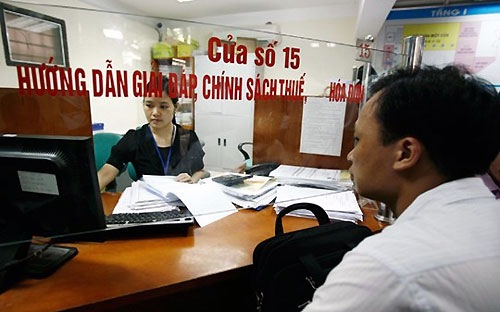The Investment Law of 2014 was passed by the National Assembly on November 26, 2014, during the 7th session, and took effect from July 1, 2015, replacing the Investment Law of 2005 with many significant changes, particularly in the regulations on prohibited investments, conditional investments, and the administrative procedure reforms related to investments.

1. Regulations on Prohibited Business Investments and Conditional Business Lines
The most significant change of the Law on Investment 2014 is the establishment of a transparent legal basis to ensure the constitutional principle of the freedom to invest and do business in sectors and trades not prohibited by law through the regulations on prohibited business investments and conditional business lines.
The gathering, review, and specific stipulation of the List of prohibited business investments and conditional business investments under the Law on Investment 2014, based on the elimination method, have fundamentally renewed the principle of law application. Investors are now free to engage in all business activities that are not prohibited or conditional under this law.
To be specific, based on the review and elimination of overlapping prohibitions in business according to guiding decrees of the Law on Investment, the Law on Enterprises, and the Law on Commerce, the Law stipulates 06 prohibited business investments, including: (i) dealing in narcotics as specified in Appendix 1 issued with the Law; (ii) dealing in hazardous chemicals, minerals as specified in Appendix 2 issued with the Law; (iii) dealing in specimens of wild plants and animals as specified in Appendix 1 of the Convention on International Trade in Endangered Species of Wild Fauna and Flora; specimens of endangered, rare, and precious wild plants and animals Group I sourced from nature as specified in Appendix 3 issued with the Law; (iv) prostitution businesses; (v) trafficking in humans, human tissues, organs; (vi) cloning activities concerning humans.
Regarding conditional business lines: Based on the review of 386 conditional business lines under current legal provisions, the Law specifically stipulates the List of conditional business lines according to the principles:
+ Abolishing unreasonable and unclear conditional business lines and conditions that create compliance cost burdens for investors;
+ Amending some conditional investment conditions to minimize licensing, certification, or approval procedures of competent state agencies, predominantly applying regulations on standards and conditions for investors to self-register and management agencies to conduct post-inspection;
+ Updating and standardizing the names and systems of some business lines to accurately and transparently reflect the conditional business lines, avoid duplication and facilitate the implementation of legal provisions on this issue.
Based on the above principles, the List of conditional business lines stipulated in Appendix 4 of the Law includes 267 sectors and trades.
The Law also amends the authority to stipulate conditional business lines and conditions. Conditional business investments are only specified in the Law on Investment, while specific conditions for each conditional business sector are specified in laws, ordinances, decrees, and international treaties to which Vietnam is a member. From July 1, 2015, when the Law takes effect, prohibited business investments and conditional business lines stipulated in other legal documents will no longer be effective. The conditions applied to the 267 sectors and trades conditional business lines issued with the Law on Investment 2014, specified in sub-decree documents, will continue to be applied until July 1, 2016.
2. Consolidating and Completing Mechanisms to Ensure Investments in Accordance with the Constitution and International Treaties to which Vietnam is a Member
The Law on Investment 2014 continues to maintain the mechanisms and principles to ensure investments as stipulated in the Law on Investment 2005, while perfecting these mechanisms and principles with specific amendments and additions such as:
- Updating regulations on the State's guarantee of investors' property ownership rights and commitment to adequate, fair compensation in cases of requisition, nationalization of investors' assets in accordance with the Constitution.
- Perfecting regulations on the State’s guarantee of non-discriminatory treatment among investors in compliance with Vietnam’s commitments to international treaties.
- Perfecting regulations on the application of the non-retroactivity principle when legal documents change adversely affecting investment incentives that have been applied to investors. The Law has removed the regulation on only applying the non-retroactivity principle to investment incentives stipulated in the Investment Registration Certificate to ensure equality in applying the non-retroactivity principle between investors granted investment registration certificates and those not required to perform this procedure.
3. Continuing to Reform Administrative Procedures Related to Enhancing Investor Responsibility in Project Implementation
The Law on Investment 2014 has drastically reformed administrative procedures towards transparency, simplicity, and ensuring effective state management of investment with important amendments and supplements including:
Firstly, the Law has abolished the procedure of granting Investment Registration Certificates for domestic investors (Article 36).
Secondly, the Law has simplified the dossier, order, and procedures and shortened the implementation time for granting Investment Registration Certificates for foreign investors to a maximum of 15 days instead of 45 days as before (Article 37).
Along with simplifying administrative procedures, the Law has supplemented, perfected several provisions to improve the effectiveness of investment project implementation, such as: supplementing regulations to ensure the investor's project performance obligations in the form of a deposit; adding provisions on the inspection of the quality of imported machinery, equipment, technology for investment projects; perfecting regulations on the transfer of investment projects, extending the investment timeline, suspending investment activities, revoking investment registration certificates, and terminating investment project activities... aiming at specific conditions, procedures for these activities, as well as the investor's responsibilities and the local management agency's authority.
Thirdly, the Law has reformed the process of establishing enterprises for foreign investors by abolishing the requirement to issue an investment certificate simultaneously as a business registration certificate to distinguish project-based investment activities from business registration activities. Following this direction, after completing the procedure for granting the investment registration certificate, foreign investors are allowed to establish enterprises at the business registration agency like domestic investors.
Additionally, the Law has clarified the legal status of enterprises with foreign investment capital to provide a unified basis for applying conditions and procedures for these enterprises, whereby only enterprises with foreign investors holding over 51%, or enterprises with the mentioned enterprises holding over 51% are subject to conditions and procedures like foreign investors. In other cases, enterprises apply investment conditions and procedures as domestic investors.
Fourthly, the Law has reformed the process of capital contribution, share purchase, and capital contribution portion of foreign investors, allowing direct execution of procedures to change members as per the law on enterprises without performing investment procedures, except in cases where foreign investors contribute capital, purchase shares, capital portions in enterprises operating in conditional business lines applicable to foreign investors, or when foreign investors own more than 51% charter capital of the enterprise after contributing capital, purchasing shares, or capital portions.
To reform this process, the Law has clearly defined the scope of adjustment between the Law on Investment and the Law on Securities in share purchase activities, specified forms of capital contribution, share purchase, and capital contribution portion of foreign investors, and clarified the conditions that foreign investors must comply with.
4. Perfecting Investment Incentive Policies to Enhance Investment Attraction Quality and Effectiveness
The Law has perfected the provisions of the current Law on Investment regarding sectors and trades entitled to investment incentives, as well as principles and conditions for applying incentives to ensure selective, quality investment attraction, focusing on high-tech, modern technical projects, large-scale production projects, rural projects using a lot of labor, projects producing supporting industry products, private investment projects in health, education, vocational training, culture...
To overcome the widespread application of investment incentives for all projects in investment incentive locations, the Law adds provisions that investment incentives will not apply based on location criteria for projects exploiting minerals and projects producing and trading goods and services subject to special consumption tax according to the Law on Special Consumption Tax.
5. Perfecting Decentralization Policies and Enhancing State Management Effectiveness of Investment Activities
To ensure the effectiveness and efficiency of state management of important, large-scale inter-regional, and inter-sectoral investment projects, the Law supplements regulations on the authority and procedures for approval of investment policies by the National Assembly, the Prime Minister, and the People's Committees of provinces and cities directly under the Central Government as follows:
- Stipulating projects under the approval authority of the National Assembly and the Prime Minister based on inheriting, lawizing, and perfecting corresponding regulations of Resolution No. 49/2010/QH12 dated June 19, 2010, of the National Assembly and Decree No. 108/2006/ND-CP dated June 22, 2006, of the Government detailing and guiding the implementation of some articles of the Law on Investment.
- Supplementing regulations on the authority of the People's Committees of provinces and cities directly under the Central Government to approve investment policies for projects with state-land allocation, lease, or land-use purpose change.
A new point in this content is the standardization and simplification of administrative procedures for certain projects under the approval authority of the People's Committees of provinces and cities directly under the Central Government. The investment management agency performs the procedure of approving investment policies simultaneously with the consideration of land-use demand, land allocation, lease, and land-use purpose change conditions. The simultaneous application of these procedures will significantly reduce administrative procedure time since investors do not have to conduct each land-related procedure step by step as current regulations require.
Additionally, the Law has shifted the authority to issue investment registration certificates from the provincial and city People's Committees directly under the Central Government to the Department of Planning and Investment; supplemented regulations on the responsibility of the Government, the Prime Minister, ministries, provincial and city People's Committees directly under the Central Government, and the management boards of industrial parks, export-processing zones, high-tech parks, economic zones in managing investment activities. It also completes regulations on investment reporting policies, monitoring, and evaluating investment activities.
6. Reforming Investment Procedures from Vietnam Abroad
Regulations on this issue are designed based on amending and supplementing corresponding contents of the previous Law on Investment; concurrently, legalizing and perfecting several provisions of Decree 78/2006/ND-CP dated August 9, 2006, of the Government of Vietnam on overseas investment. The Law affirms the principle that investors are allowed to conduct overseas investment activities to exploit, develop, expand markets; enhance the ability to export goods, services, earn foreign currency; access modern technology, improve management capacity and supplement resources for national economic development; overseas investment activities must comply with this Law, the laws of the receiving country, and international treaties to which Vietnam is a member; investors are responsible for the effectiveness of investment activities.
The Law also stipulates the responsibility of investors in mobilizing funds (including foreign currency) for overseas investment activities; clearly defines the authority, responsibilities of investors, state owner representative agencies, and related agencies in making investment decisions and managing overseas investment activities; and supplements several regulations on implementing procedures for overseas investment activities to create a mechanism for tight supervision and management of transferred funds abroad for investment activities.
Additionally, the Law supplements the form of overseas investment through the purchase and sale of securities, other valuable papers, and investment through securities investment funds, other intermediary financial institutions abroad without directly managing investment activities, and assigns the Government of Vietnam to provide guidance to create a legal basis for investment activities in this form.
Source: National Portal on Business Registration
 Article table of contents
Article table of contents





.Medium.png)
.Medium.png)
.Medium.png)
.Medium.png)
